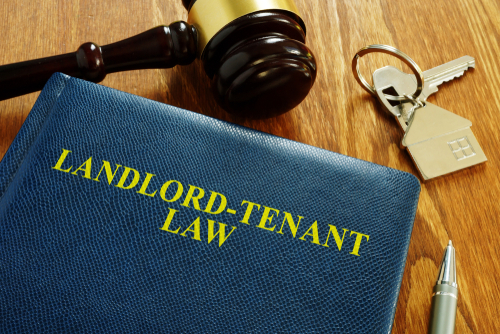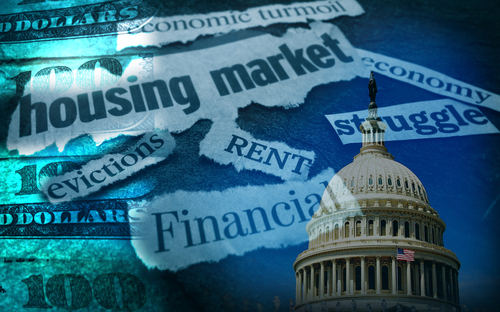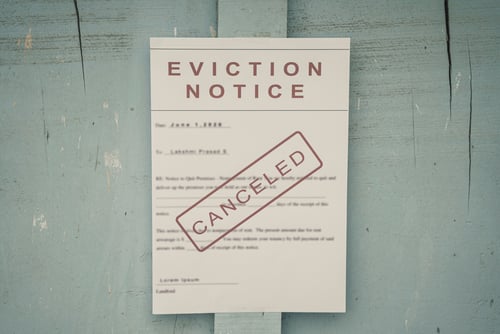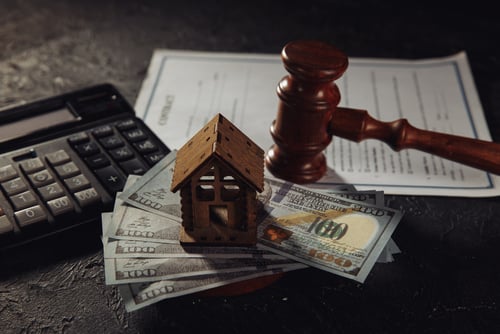On August 2, 2022, the White House and the Department of Treasury hosted the White House Summit on Building Lasting Eviction Prevention Reform. The summit’s goal was to share feedback and strategies for limiting evictions across the United States and more eviction prevention methods. That said, if you want to learn more about the summit and eviction prevention programs going forward, just keep reading.

Contents of This Article:
- What Was the White House Summit on Evictions?
- What are Eviction Prevention Programs?
- White House Efforts for Lasting Eviction Prevention Reform
- How do Eviction Prevention Programs Impact Landlords?
- How Can Property Management Help Property Owners?
What Was the White House Summit on Evictions?
The White House Summit on Building Lasting Eviction Prevention Reform held on August 2 allowed several policymakers and community advocates to share feedback on limiting evictions. Additionally, summit attendees had the chance to talk about how to use excess American Rescue Plan Act (ARPA) funds to further prevent evictions in the US.

Additionally, policymakers offered an examination of programs halting evictions in several areas around the US. According to the National Apartment Association, in Philadelphia, 85% of evictions resulted in a settlement or agreement to continue negotiations in part to the city’s diversion program.
Speakers during the summit looked at and discussed eviction programs and statistics in cities around the country. While several programs have promising outcomes for renters, they don’t solve the stability problem at the source. As such, it’s crucial to focus on addressing the renter’s financial insecurity through rental assistance programs and housing vouchers. Next, let’s go over eviction prevention programs and how they affect renters and landlords.
What are Eviction Prevention Programs?
Generally, eviction prevention programs help renters facing eviction by providing financial assistance. Most assistance programs are designed for families or individuals who are being evicted due to nonpayment of rent due to an unforeseen circumstance. That said, eviction prevention programs may also help renters apply for government assistance or find affordable housing.

While all programs differ, most of them help renters apply for government benefits and search for affordable housing. Additionally, some programs offer financial counseling or budgeting workshops to help prevent evictions and encourage stable housing. On the other hand, some other eviction prevention methods include longer-term rental assistance or the provision of legal services to vulnerable tenants.
To qualify for eviction prevention programs, eligible tenants have to apply for assistance within their jurisdiction. Additionally, most assistance programs depend on your household income and size. Finally, in some cases, you have to have an eviction case pending to establish the risk of eviction.
Ultimately, most eviction prevention programs depend on the situation. Next, let’s go over how the White House summit in August may affect renters and landlords moving forward.
White House Efforts for Lasting Eviction Prevention Reform
The goal of the White House summit in August was to build lasting eviction prevention reform. As such, there are a few major efforts put in place this year to help prevent new evictions moving forward. Here are the main takeaways, according to the White House Fact Sheet.
- Expansion in Eviction Diversion
- Increased Right to Counsel
- New Tenant Protections
Expansion in Eviction Diversion
Before the pandemic, there were just a few eviction diversion programs. Since then, the Biden-Harris Administration has implemented or enhanced programs in cities around the US. For instance, Supreme Courts in Michigan, Indiana, New Mexico, and Texas adopted eviction diversion programs to help provide financial relief to renters.
That said, the efforts in Michigan cut eviction rates in half and reduced eviction filings in New Mexico below historical averages. Additionally, 85% of eviction cases in Philadelphia reached a settlement or negotiation, keeping eviction rates steady.
Increased Right to Counsel
At the start of the pandemic, only five cities had a legislative right for tenants to counsel. Today, three states and fifteen cities have adopted the right to counsel. Additionally, over fifty cities increased access to counsel for tenants using federal funding.
In June 2022, legal representation for tenants increased by nearly 90% in some places in Michigan, including Detroit. Additionally, Legal Services Help Desks and Right to Counsel have helped housing stability in New Orleans for 96% of cases.
New Tenant Protections
Finally, new tenant protection policies are the last major effort to lessen evictions across the US. Since January 2021, 31 states and 67 localities have implemented policies totaling over 150 tenant protections.
Some of the main protections include pausing the eviction process while rental assistance applications are pending. Additionally, more protections include right-to-counsel legislation and eviction record-sealing laws.
How Do Eviction Prevention Programs Impact Landlords?
Eviction is a stressful and uncomfortable process for tenants and landlords. That said, eviction was especially challenging during the pandemic when there were eviction moratoriums and restrictions for landlords. Unfortunately, many landlords struggled during this time due to nonpaying tenants and the eviction moratorium. However, now that assistance programs are out to help tenants afford rental housing, how do they impact landlords?
First, it’s important to recognize how eviction processes affect landlords. When someone doesn’t pay rent or damages your property, leading to eviction, it leaves landlords with several expenses to cover. For instance, there are still property taxes, utilities, and maintenance costs to consider. As such, delayed evictions or laws prohibiting evictions can be very detrimental to landlords.

That said, eviction prevention programs can be unfavorable for landlords. For instance, the National Eviction Moratorium put a lot of landlords behind on business and personal finances, causing some owners to sell their investments. In addition, during this time, some tenants could not make rent payments but could not be evicted due to Covid-19’s threat to public health.
On the other hand, some prevention methods are beneficial for landlords and tenants. For instance, when tenants accept financial assistance, it can ensure that rental payments are taken care of on time each month.
It’s safe to say that the past few years have had several economic ups and downs. That said, it’s important for investors, renters, and Northern Virginia property management companies to work together to find solutions that benefit everyone.
How Can Property Management Help Property Owners?
Eviction prevention programs can affect property owners in several ways. That said, if you own rental properties, you know how challenging it can be to find new tenants, write up contracts, keep track of finances, and maintain each rental.
If you find yourself struggling to keep up with the day-to-day tasks of owning rentals, consider hiring professional property management. With the help of Northern Virginia property managers, you can feel confident that your rentals are well taken care of at all times.
Bay Property Management Group offers comprehensive rental management services to landlords around Baltimore, Philadelphia, Northern Virginia, and Washington, DC. If you’re looking for help with tenant screening, property maintenance, rent collection, and more, contact BMG today.

